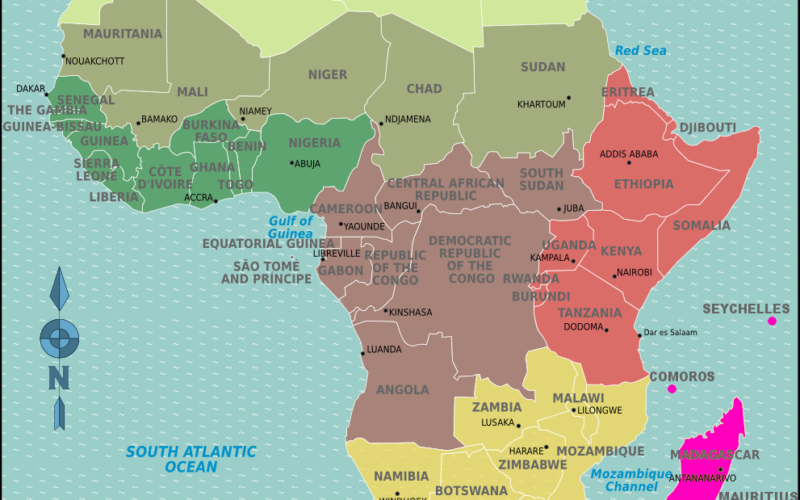As child labor rates rise globally, the amount of children forced into labor in Africa is nearly four times more than that of any other region, according to a new report.
Published on research data site Statista, researchers found that in 2020, approximately 21.6% of children living in Africa ranging from the ages of five to 17 were forced into child labor. Comparatively, the child labor rate for children in the same age range in Europe and Central Asia was reported to be 5.7%.
In the Americas, approximately four percent of children ages five to 17 were workers.
The latest data corroborates the findings of previous reports released by organizations such as UNICEF. According to the organization’s latest 2023 update, in Africa, more than one in four children are working in jobs that are harmful to their health and overall growth.
A majority of these children are forced into agricultural work. Approximately 61.4 million children in Africa are involved in the agricultural sector as unpaid workers per the International Labour Organization.
While other companies benefit from child labor in agriculure, chocolate companies are notoriously known for their usage of child labor to create their products.
Along with the latest report on the practices of the Mars candy company, Cargill, Nestle and Hershey were accused in 2021 of using child labor to harvest the cocoa material. The eight defendants claimed that they were trafficked from Mali into the Ivory Coast to work on cocoa farms.
Previously, a decade before, all four companies pledged to work alongside the International Labour Organization to combat child labor in cocoa fields.
Clothing and tech brands have also been linked to child labor in Africa. In 2011, a report from Bloomberg revealed that children as young as 13 worked on cotton fields in Burkina Faso to gather the material to create Victoria’s Secret products.
Although the farm was certified as organic and fairtrade, implying that it had created safe and sustainable working conditions, the 13-year-old girl was subjected to physical violence daily while working.
In the tech industry, Apple, Google, Dell Microsoft and Tesla have all profited by child labor in cobalt mines. For years, the Congolese have been forced into harsh conditions as miners for less than $2 dollars a day, according to the Wilson Center. 40,000 of these workers are children as young as six.
As the children are exposed to high emissions of carbon dioxide and nitrogen dioxide while mining for cobalt, in 2019, these big-tech companies were named as defendants in a case filed by the International Rights Advocate on behalf of a group of parents and children from Congo.
The lawsuit claimed that numerous children died or sustained substantial injuries while looking for cobalt for these companies.
Although the case was dismissed in 2021, the International Rights Advocate filed an appeal, vowing to get justice.
“Because the companies have failed to take responsibility for their supply chains, despite claiming to have ‘policies’ that allow them to monitor for and enforce their prohibition on child labor, we had no choice but to sue them,” said the group in their public statement. “A victory in this case will set an important precedent that companies that knowingly support forced labor or trafficking in their distant supply chains can be held liable in a U.S. Court.”
Despite many big name companies being linked to child labor, there are some that have been vocal about incorporating child labor-free practices in their creation process.
Clothing company People Tree has pledged to not to use child labor at all in their practices, serving as a “fairtrade fashion pioneer” in the industry for its ethical creations.
Chocolate company Divine Chocolate, founded by a group of farmers in Ghana, has a farmers co-op and oversees the entire sales process to ensure child labor is not involved in the process, according to the Borgen project.
Theo Chocolate also works directly with the farmers in Congo to ensure that the cocoa used to make its chocolate is organic and harvested using fairtrade.








